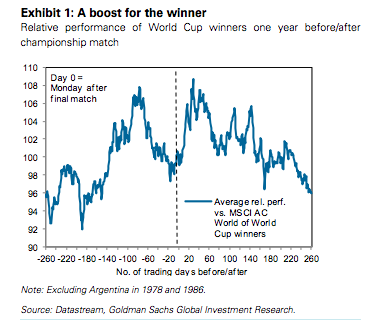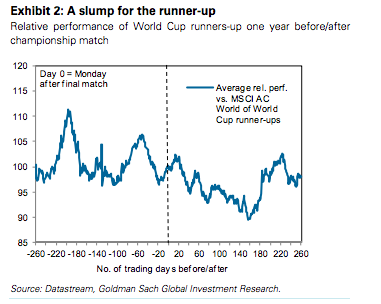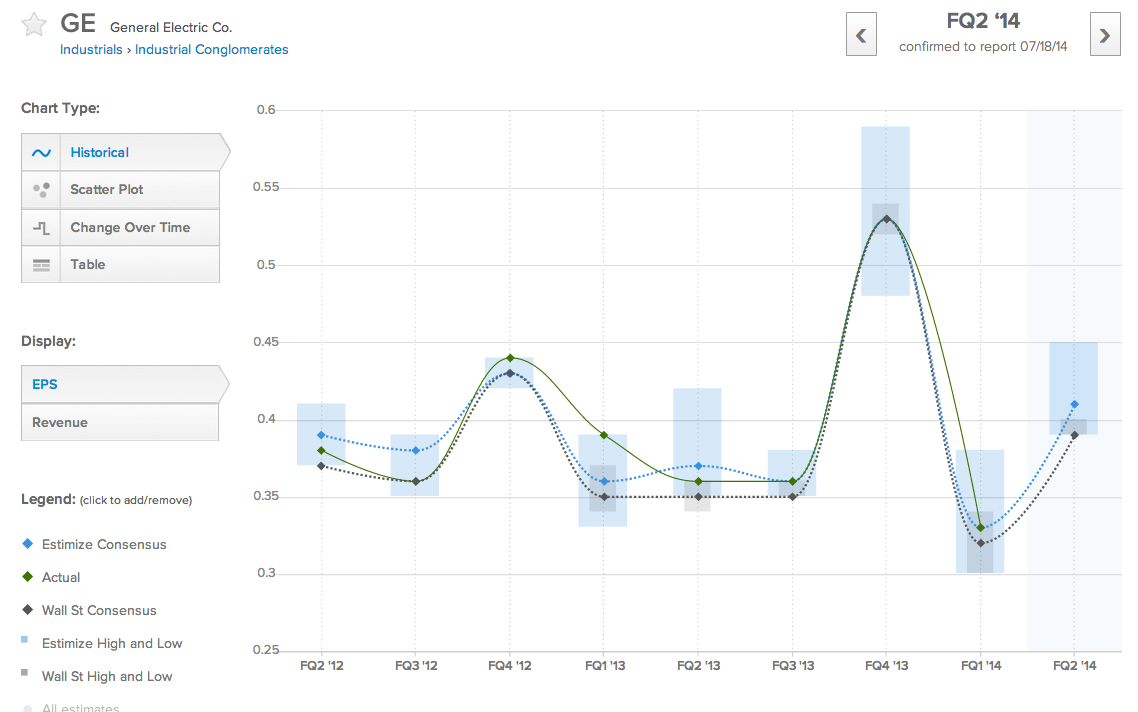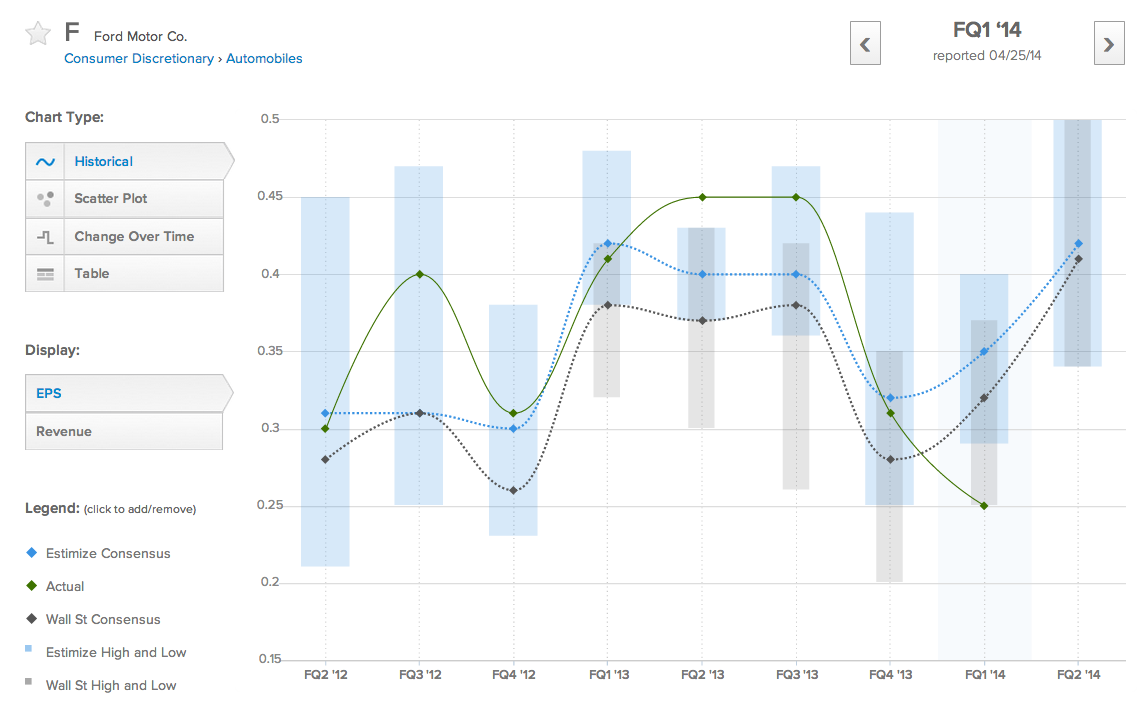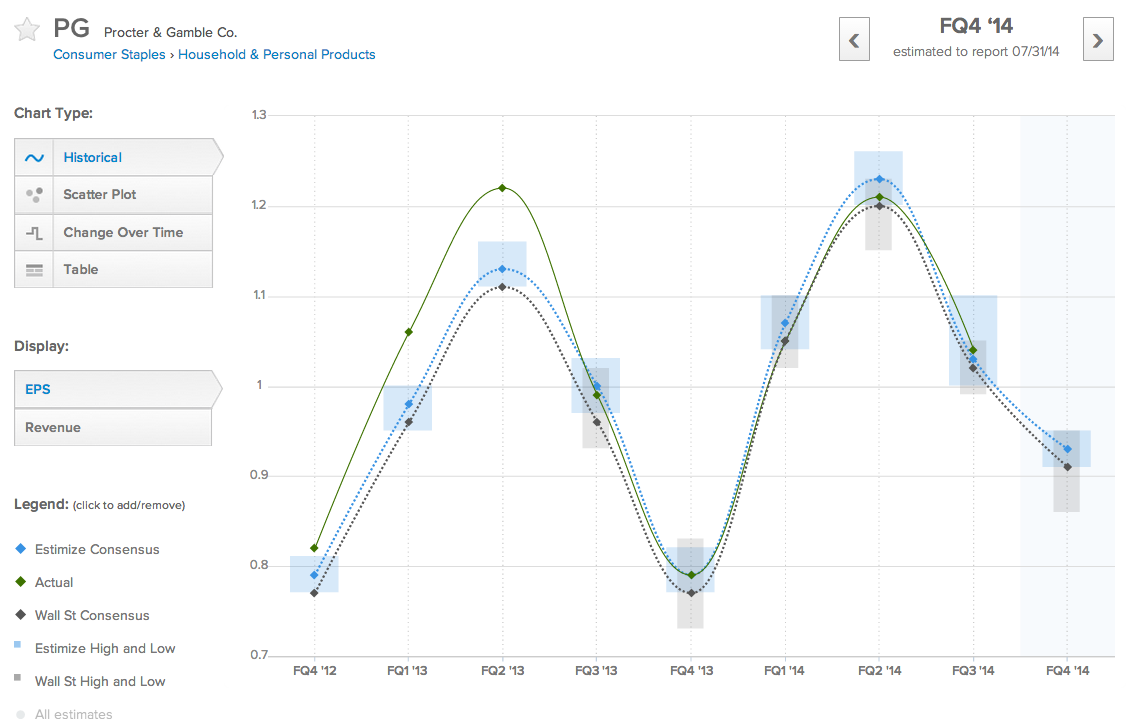The World Cup officially kicked off in Sao Paulo Thursday evening with the host nation Brazil taking on Croatia. Over 3 billion people around the globe are expected to tune in to watch at least some part of the month long tournament. Goldman Sachs recently published a research report called The World and Economics 2014 and their statistical model found that Brazil will likely be the winner. Surprise surprise.
The sports data team at FiveThirtyEight also found that Brazil is the mathematical favorite to lift the cup, giving the host nation a 45% probability to win the whole thing. Goldman Sachs’s went on to highlight some of the measurable economic and financial effects that the World Cup tends to have on equity markets. Here are some of the highlights from the report:
Initially, whichever country wins the tournament sees a sugar high in their domestic stock market. On average the equity market in the country of the winning team tends to outperform the global average by about 3.5% in the month after the victory. But the gains are fleeting. The majority of the initial boost typically fades after 3 months and the winning nation normally underperforms the global market average by about 4% throughout the year following the World Cup. Talk about a serious case of the winner’s curse.
Winning doesn’t help a country’s domestic stock market, but coming in second appears to be even worse. On average the World Cup runner-up nation experiences a 5.6% underperformance compared to the global average in the 3 month period following the end of the tournament.
Much of the media focus following the build up to the World Cup has been shining a light on the economic situation and social unrest in Brazil. Brand new stadiums costing hundreds of millions of dollars are casting their shadows on the favelas. There were riots and demonstrations in Brazil protesting how much money was spent on stadiums while a significant chunk of the population lives in extreme poverty. The poorest 34% of Brazilians take in only 1.2% of the country’s wages. Most economists don’t expect the World Cup to offer much help to those struggling, other than minor temporary gains in employment. However, the World Cup is expecting to lift stocks in the host nation’s domestic equity market, at least for a month or so.
The United States is entering the tournament ranked 14th according to Fifa, ahead of the star studded lineup fielded by The Netherlands. That can’t possibly be right. Anyway, despite drawing a difficult group including the likes of Germany and Portugal, Goldman Sachs’s statistical model is giving the United States a 40% chance of advancing to the knockout stage. In the report’s coverage of team USA, Goldman points out the sector to watch right now in the United States’ economy, manufacturing. Goldman argues that falling costs of labor and energy in the United States alongside increasing productivity is improving the relative option of manufacturing in the United States compared to offshoring.
A few of the largest companies with manufacturing operations here in the States include General Electric (NYSE:GE), Ford (NYSE:F), and Procter and Gamble (NYSE:PG)). If Goldman Sachs’s thesis about US manufacturing is correct, these companies could be facing lower costs and may report better than expected EPS numbers at the end of the quarter.
GE has beaten the Wall Street EPS consensus by 1c per share in 4 of the past 5 quarters. Maybe this quarter General Electric can finally put a gap between its earnings and the sell side’s estimates.
Ford’s earnings have had a strong run over the past couple of years, with last quarter being the only major expectation. In April Ford posted 25c per share in earnings when Wall Street was looking for 32c and the Estimize community had forecast 35c. Ford blamed higher costs and disappointing retail sales for the weakness. If Goldman is right about US manufacturing becoming more attractive, we could see a huge bounce in Ford’s earnings coming off the big miss last quarter.
Finally we have Procter and Gamble, which has quietly matched or beaten the Wall Street consensus in each of the past 8 quarters. Procter and Gamble is an American multinational consumer goods company known for brands such as Tide, Gillette, Duracell, Crest, Pantene, and more. This quarter contributing analysts on the Estimize.com platform are already predicting that PG will beat the Street’s earnings consensus by 2c per share, that differential will be worth keeping an eye on as the quarter progresses.
The Yanks don’t have a great shot this year in Brazil, Goldman Sachs’s predictive model is only giving us a 0.5% chance to win the World Cup. But if you’re a real fan of the market and not necessarily a fan of soccer, you might be rooting against team USA anyway. With the two finalist nations’ domestic stock markets underperforming the global average historically, who would want the United States to reach the finals in the first place?

